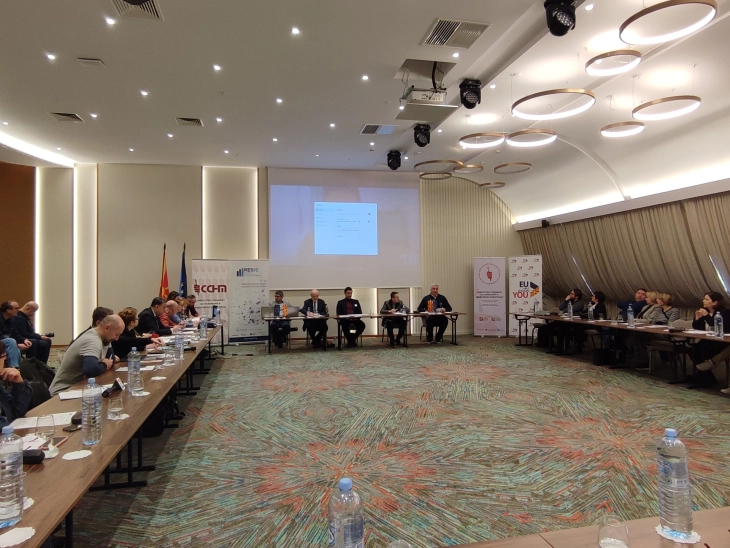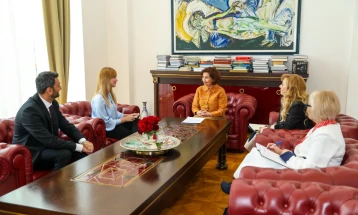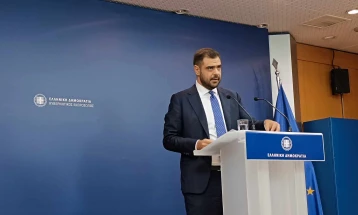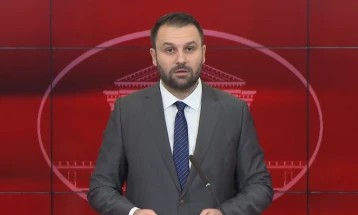Over half of media employees receive below-average salaries, one in three online media employees work full time: research
- Fifty-five percent of 3,146 media employees, of whom 53 percent are women, receive below average salaries. One-fifth, or over 600 employees, work in online media where 70 percent receive below-average salaries, according to latest research "Workers' Rights in Independent Journalism" conducted by the Independent Union of Journalists and Media Workers (SSNM), in partnership with Research Institute on Social Development (RESIS) and EU, which was presented at a conference on Wednesday.

Skopje, 24 January 2024 (MIA) - Fifty-five percent of 3,146 media employees, of whom 53 percent are women, receive below average salaries. One-fifth, or over 600 employees, work in online media where 70 percent receive below-average salaries, according to latest research "Workers' Rights in Independent Journalism" conducted by the Independent Union of Journalists and Media Workers (SSNM), in partnership with Research Institute on Social Development (RESIS) and EU, which was presented at a conference on Wednesday.
"A total of 39.1 percent of online media employees work full time. Our fear and assumptions came true - that online media employees make up one fifth of the total number of employments, or 600 employees. Unfortunately, only one out of three employees regularly works full-time for a below-average salary," said SSNM President Pavle Belovski.
Economic instability continues to pose as a challenge for journalists and media employees, therefore focus, according to Belovski, should remain on efforts to improve labor and social rights. The European Commission noted that the country needs to improve dialogue between unions and Government and come up with acceptable solutions to these issues.
"Socioeconomic independence and stability of media employees and journalists is based on their professionalism and standards of our profession and integrity. Thanks to EU's support, we now have an overview of the situation in the region," Belovski noted.
Research will continue until June, and based on the findings, they will create proposals for the most necessary legal amendments that will contribute to solving these issues.

EU Ambassador David Geer said that journalists should be afforded adequate political, economic and societal standards.
"It is crucial to have socioeconomic conditions that will allow journalists to invest in their work, meaning they would not work part-time, with fixed-term contracts and job insecurity. Security and fair working conditions are necessary," Geer stressed.
In today's environment and the changes happening, he added, journalism is, unfortunately, not appealing to young people. And others might find it appealing for the wrong reasons, as he said, "not to discover the truth, but to influence."

European Federation of Journalists President, Maja Sever, highlighted the struggle of journalist unions in the region and Europe, noting that in order to protect the independence and professionalism of media, it is necessary to invest and improve journalists' socioeconomic status.
"It is important to ensure the independence and sustainability of media by protecting journalists' socioeconomic status. Only through joint efforts by media organizations, civil society and independent unions, even through cooperation and negotiations with government authorities can we create an environment in which journalists can fulfill their role as guardians of the truth and public interest," said Sever. ssh/ik/
Photo: MIA







